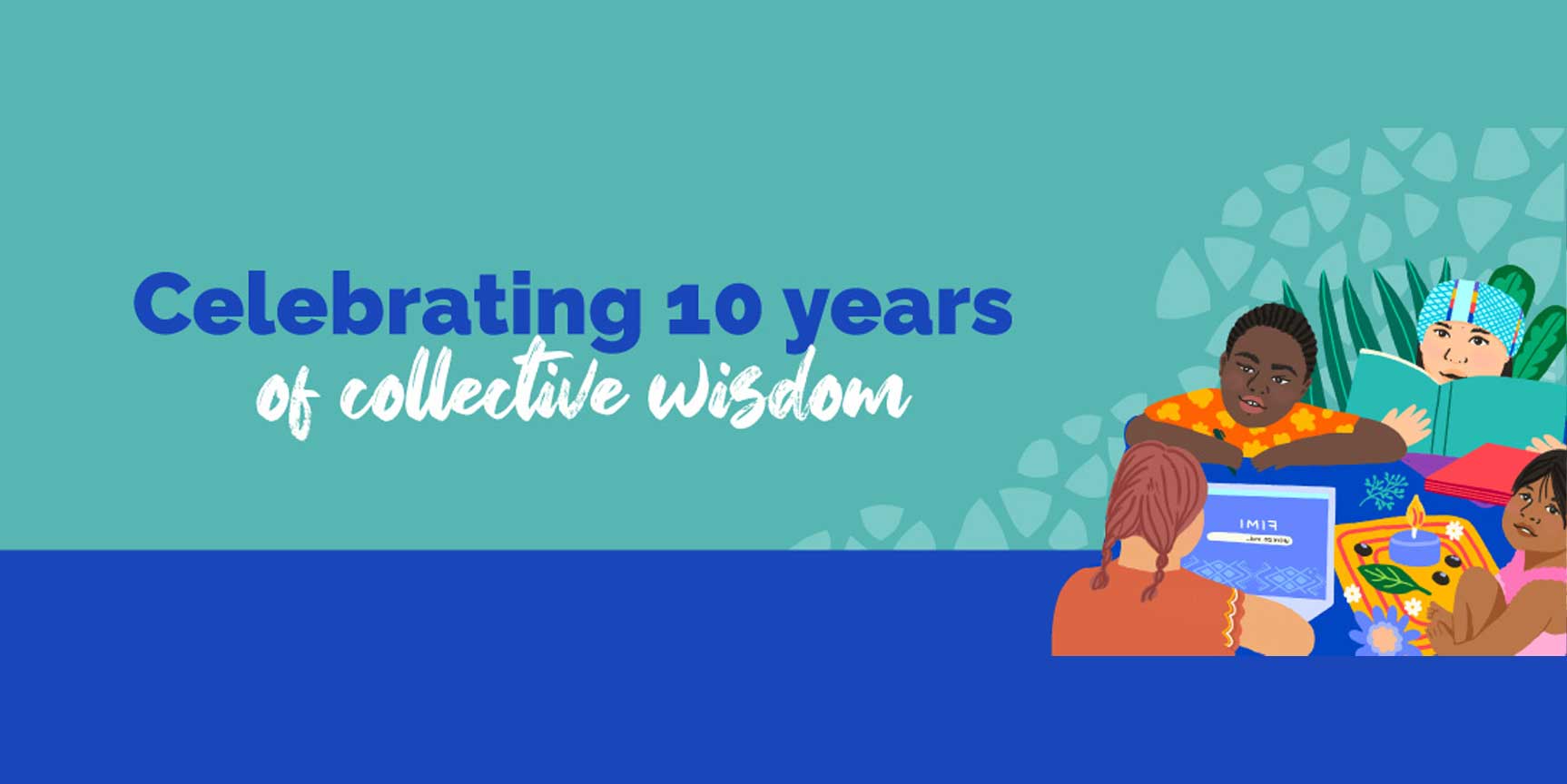
So has spoken Siobhon McManus, an activist and Indigenous leader who graduated from the Global Leadership School of Indigenous Women, during the closing event of this year’s edition organized by FIMI.
The closing event of the School’s tenth edition was held last Friday, May 5. Each one of the leaders from Africa, Asia, the Arctic, the Americas and the Pacific, received their diploma and will be using the knowledge acquired to carry out projects in their communities of origin.
The event also marked the return of the on-site participation of the leaders at the United Nations Permanent Forum on Indigenous Issues (UNPFII). Because of the pandemic, the members of the Global Leadership School of Indigenous Women had had to participate remotely only.
According to Cecilia Ramírez, coordinator of the School, the UNPFII is a space where the newly graduated leaders can make recommendations, organize parallel events and participate in them. Informed by what they learned in the seminars, they then go on to draft their advocacy plans, which have as a main objective to drive change at different levels within their community.
Teresa Zapeta, FIMI’s executive director, mentioned that there is the intention of connecting the advocacy plans with the Ayni Fund, which is the first and only fund directed by and for Indigenous Women, or other available funding mechanisms, so that all the graduated leaders can access the necessary resources to execute their plans within their communities.
Each year, FIMI proposes to innovate in the applied methodology and the content of the training process. Similarly, the School’s most important objective, as stated by Elsa Stamatopoulou, Director of the Indigenous People’s Rights Program at Columbia University, is to build bridges and share knowledge. In fact, Siobhon McManus, a leader who graduated from the School and also participated in the event, expressed that the most enriching part of the experience was the opportunity to connect as sisters with other Indigenous Women from different parts of the world: “The international community wakes up when we come together and share knowledge,” she said talking to her colleagues.
With the conclusion of this edition, the Global Leadership School of Indigenous Women has seen the graduation of 248 leaders.





